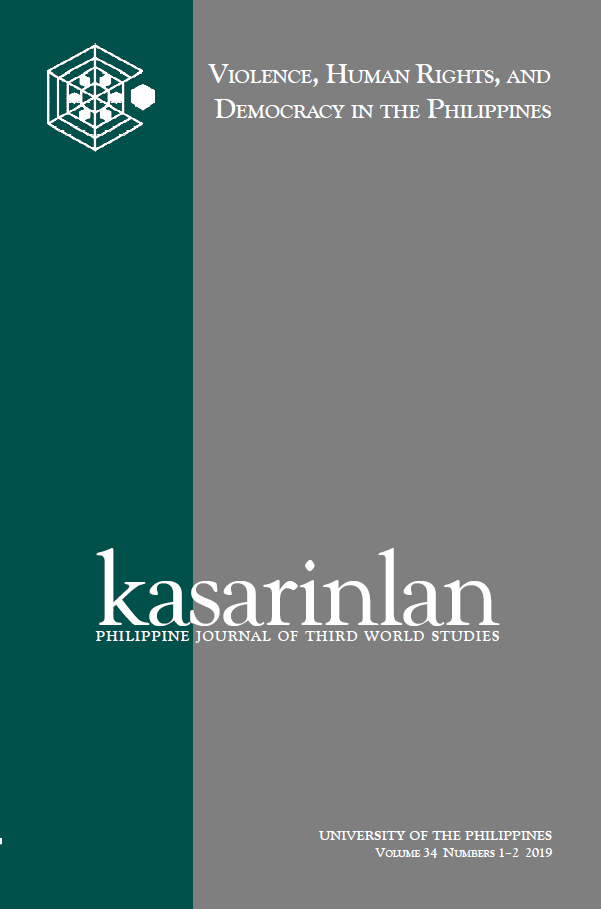Developing a Method for Recording Drug-Related Killings
Abstract
President Rodrigo Duterte’s “war on drugs” has fostered a culture of violence and impunity that has seen an alarming increase in the number of unresolved killings. There is a need to probe these killings in a methodological manner so as not to cause even more confusion among a people already bombarded with misinformation on a near-daily basis. There are a number of databases and estimates of the drug war’s casualty count, but few actually take the time to explain how they come up with their figures. This study aims to (1) develop a method in recording drug-related deaths in the Philippines, (2) to create a database of reported killings using the method developed, and (3) to identify key trends in the circumstances of the deaths and the media’s coverage of those deaths. The main contribution of this study is neither an exact death toll nor an exhaustive record of victims but a clear set of parameters on what constitute drugrelated deaths and how they can be recorded by other concerned parties. Due to practical constraints, the study was based only on the news reports of a single source. Still, recording drug-related killings is a step toward seeking accountability from its perpetrators. It is hoped that, through this endeavor, institutions, especially the academe, will be encouraged to monitor killings in their localities, particularly those that are often out of the mainstream media’s reach.
Published
2020-02-12
How to Cite
LIMPIN, Dianna; SIRINGAN, Ruth.
Developing a Method for Recording Drug-Related Killings.
Kasarinlan: Philippine Journal of Third World Studies, [S.l.], v. 34, n. 1-2, p. 141-180, feb. 2020.
ISSN 2012-080X.
Available at: <https://journals.upd.edu.ph/index.php/kasarinlan/article/view/7082>. Date accessed: 16 sep. 2025.
Section
Articles
Keywords
drug-related killings; counting; database; drug war
By submitting a manuscript, the authors agree that the exclusive rights to reproduce and distribute the article have been given to the Third World Studies Center.



